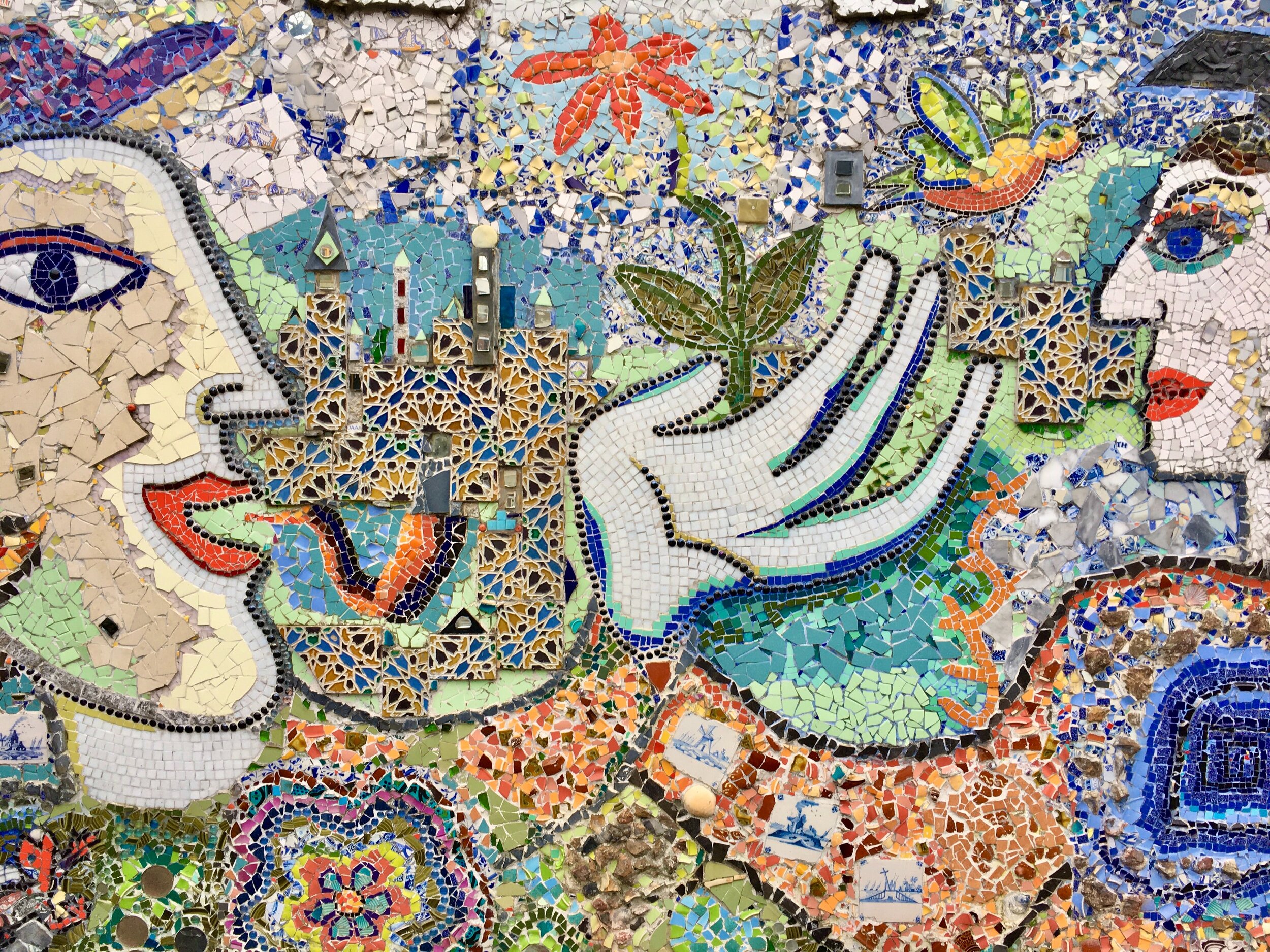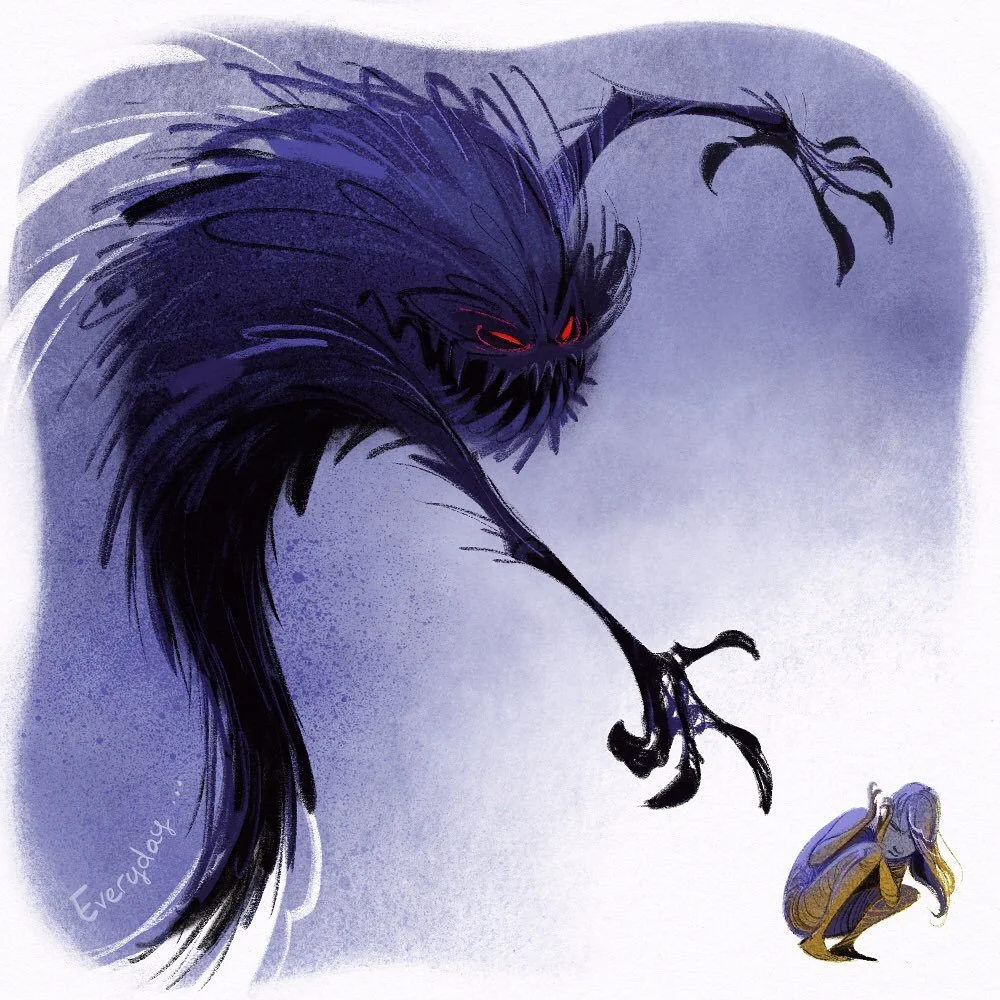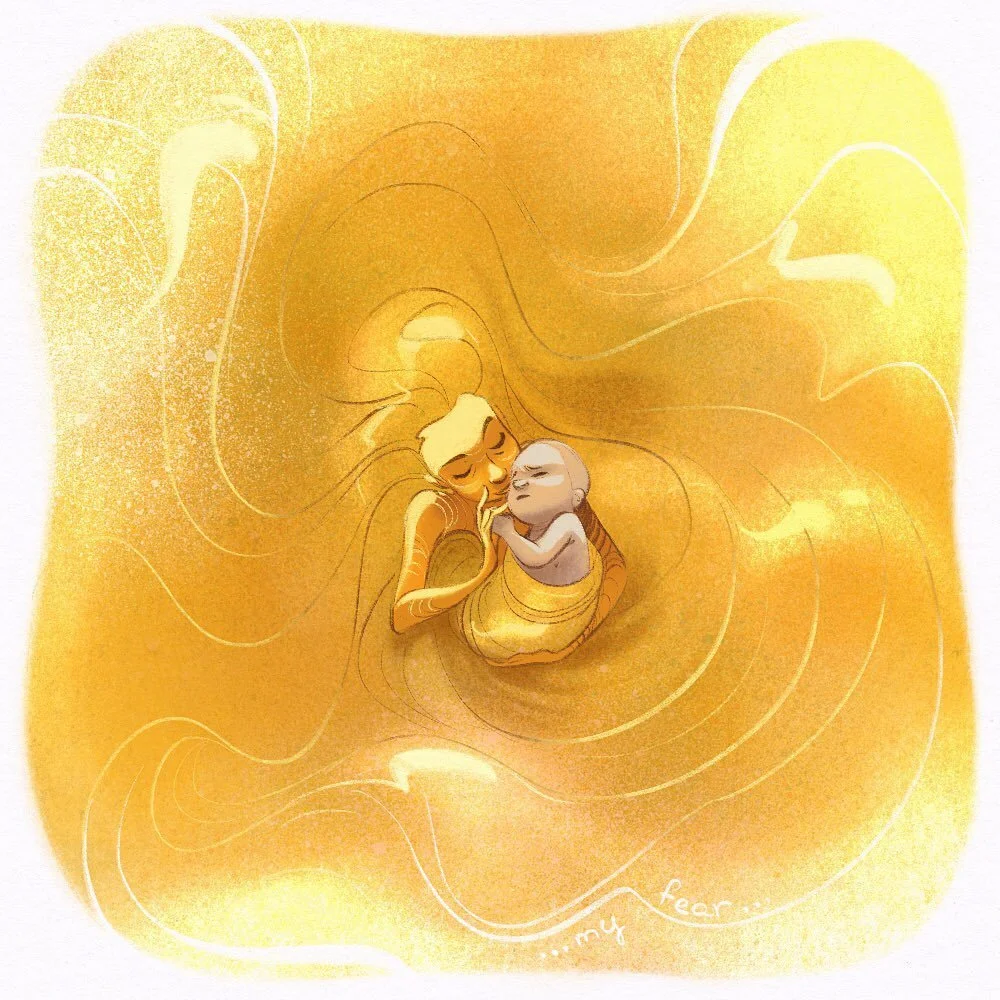
Internal Family Systems Therapy in the Bay Area: Love Your Parts, Lead from Self
Culturally affirming and trauma-informed IFS Therapy for adults in the San Francisco Bay Area & online throughout California
"I want out of this relationship, but I don't want to be alone."
"It would be good to exercise, but I just want to binge on Netflix."
"I need to rest, but I don't want to fall behind at work; time is precious!"
"I need to speak up, but if I do, I'm afraid I'll ruffle feathers and end up alone."
"I know what happened to me was painful, but others have had it so much worse; I shouldn't complain."
Intro to Internal Family Systems therapy (IFS therapy/parts work therapy)
The statements above are examples of the many polarized thoughts that rush through us daily. When extreme, these thoughts/feelings can generate a lot of internal conflicts. Such conflict can often feel like you are at war with yourself, which naturally leaves you exhausted, and things appear fruitless or pointless. And whatever you do, you just can’t win!
The truth is, you can’t win when you are at war with yourself. Parts of you will feel validated because they prevailed on that given day. For example, you worked hard and exceeded your boss’s expectations. However, that will leave other parts unattended and miserable. For instance, the part of you that needs to rest.
I love the therapeutic model known as Internal Family Systems (IFS) because of the way it helps us heal these internal polarizations. It was developed by Richard Schwartz, Ph.D., a world-renowned researcher whose work spans the last 40 years. IFS is an evidence-based psychotherapy established in the early 1980s and proven to alleviate many forms of psychological suffering, such as anxiety, depression, and trauma.
How can Internal Family Systems therapy (IFS therapy) help me?
One of the most significant advantages of Internal Family Systems (IFS) therapy is its ability to help us safely connect to our shame, anger, fear, sadness, and anxiety from a place of wisdom, curiosity, and compassion. By learning to regard your inner experiences (parts) as wisdom messengers instead of qualities of your character that you vilify and are fearful/ashamed of, you can alleviate the tension you feel inside and gain more clarity about your identity, needs, and wants in life.
For instance, the Inner Critic is a part that many of us carry. Instead of experiencing this part as an inner tormentor that manifests as negative self-talk and self-disparaging remarks, we can repurpose this part into a gentler and more effective voice that still helps you stay on track. We can apply the same concept to the Perfectionistic part, the Procrastinator, the Caretaker, the People Pleaser, the Overachiever, the Conformist, the Bully, the Saboteur – you get my point!
All of these parts exist in our system for valid reasons. They got us through life and are our protectors, although they often act in ways that eventually harm us. With IFS therapy, we facilitate a process through which your parts lessen their extreme behaviors and find healthier ways to fulfill their purpose.
While in session, the IFS therapist is your guide and co-traveler on your inner quest for rediscovery and healing. Your parts will no longer be polarized and entangled, and you can learn to be your own best therapist for life.
Internal Family Systems (IFS) Therapy also unequivocally acknowledges the spiritual quality of the Self, which is our wise and compassionate essence of goodness that is the source of our healing and inner harmony. This makes this model an effective way to facilitate spiritual development and exploration alongside emotional healing.
IFS helps you know yourself on a deeper and more intuitive level — all the different thoughts, behaviors, and beliefs that make up the various aspects of who you are.
An example of IFS/Parts work as illustrated by Cécile Carre
-
The Inner Critic shows up, and appears menacing at first. We can feel worthless, ashamed, and/or depressed.
Self-doubt, performance fears, obsessive thinking, and self-harmful behaviors can emerge.

-
As we listen to its story, the Inner Critic softens, and its grip loosens.
We are in a less scary place, as we are starting to get to know the Inner Critic’s story.

-
As we continue to listen to our Inner Critic’s story, we discover to our amazement that it is trying to help us.
Its criticisms and harshness are misguided attempts to protect us from further harm and humiliation.

-
Once we realize our Inner Critic’s positive intent, we are no longer at war with it. We cultivate compassion for our Inner Critic.
In return, our Critic is more cooperative as an Inner Ally instead of an antagonist.

-
Our new relationship with our Inner Critic can allow us to heal our wounded Parts that carry burdens from our lived experiences.
Healing is possible, and we can help our Parts release deep rooted feelings of shame and worthlessness.


“The idea that any part of us is “sabotaging” or “negative” is just not in my universe. Of course, parts of us may do things that have negative results, and can even cause much pain and devastation. But fighting them sets them up as enemies. Once we see something as an enemy, we’ve lost our chance to discover and receive its messages and gifts.”
– Ann Weiser Cornell
If you are curious about Internal Family Systems therapy and want more information on the model, please read on:
Internal family systems: Is there just one “you”?
We’ve been taught to believe we have a single identity and to feel fear or shame when we can’t control the inner voices that don’t match the ideal of who we think we should be. Yet Dr. Richard Schwartz’s research now challenges this “mono-mind” theory. “All of us are born with many sub-minds - or parts,” says Dr. Schwartz. “These parts are not imaginary or symbolic. They are individuals who exist as an internal family within us - and the key to health and happiness is to honor, understand, and love every part.”
We all have “parts,” and all are welcome.
The IFS model is based on the premise that we are more like mosaics, or puzzles, with the pieces comprising different thoughts, feelings, sensations, beliefs, memories, and sensations. This is what IFS calls parts. We call it a “part” because that makes it easier for us to get to know it. In IFS, parts are normal, and we all have them.
Suffering happens when different parts of us want different things, i.e., a part of me wants to break up with my partner, and another thinks I shouldn’t.
In fact, what if what we refer to as “thinking” is our different parts talking to each other?
When our parts are in agreement, there isn’t much inner conflict. However, when parts are in disagreement, and different voices inside us ask for different things, we feel the irritation, uneasiness, and frustration caused by inner turmoil. When this inner turmoil is left unprocessed, anxious and depressive symptoms may surface. Eventually, we feel disconnected from what we truly need and want, and our relationships with loved ones suffer. Healing happens when we reconcile the polarities we experience inside.
This movie is a beautiful depiction of how all our parts have benevolent intent, including the ones that make us feel bad. All parts work hard to take care of us.
In a nutshell, when you hear a point of view in your head or experience an emotion, that’s what we call a part. Our thoughts, feelings, sensations, and beliefs aren’t arbitrary. If you give yourself the time and the space to get to know your parts, ask the right questions, and explore your inner world with curiosity, you can find answers, deepen your self-knowledge, and bring harmony and healing to your life.
An awesome clip from Pixar’s Inside Out movie brings to life how different parts live inside ourselves. Inside Out refers to emotions in the same way IFS refers to parts. As illustrated in the film, our parts are like tiny beings inside us, each having desires, needs, and worries. And each part tries to do what they think is best for us.
More specifically, in the movie, the protagonist Riley’s parts each have their agendas. Joy is pursuing happiness, Anger desires fairness, Disgust is about protection from poison, Fear’s focus is safety, and Sadness is hard to write about without spoiling the movie experience!
Internal family systems (IFS) believes we all have Self
When you arrive at a place of curiosity and even compassion for yourself – even towards the parts of you that feel the scariest – you are getting in touch with what IFS has coined “Self.”
The Self is your inner core where qualities such as compassion, curiosity, courage, clarity, confidence, connectedness, and calmness reside - your seat of consciousness.
Our goal in IFS therapy is to help you reconnect with Self and have it emerge as the leader and designer of your life.
In a way, your Self will function as an empathic, connected, and emotionally warm parent to your inner parts family. Instead of battling each other like sibling rivals, your parts can start experiencing internal connection and harmony and develop mutually beneficial solutions for your whole inner system.
“We all have what IFS refers to as the “Self” – our core, our essence, our internal compass that possesses inherent wisdom and healing capacity.” - Frank Andersen, MD
One metaphor is to imagine the Self as like the sun; even when the sky is stormy, dark, or cloudy, the sun still shines above those clouds, and the sky is always blue.
No matter how bad the internal storm, the Self is unaffected.
This illustrates the indestructible nature of the Self.
Frequently Asked Questions about Internal Family Systems (IFS) Therapy
-
IFS Training and Certification:
Therapists commonly provide details about their training and experience on their websites. If such information is not readily accessible, don't hesitate to inquire directly about a therapist's training and their familiarity with incorporating Internal Family Systems (IFS) therapy into their practice.
Internal Family Systems training typically encompasses Levels 1, 2, and 3. Therapists may highlight the completion of specific levels on their websites. Certified IFS therapists, for instance, have successfully completed Level 1, meeting consultation hour requirements, and obtaining certification.
I've completed training in Levels 1, 2, and 3, and obtained certification. I also pursued specialized training in areas such as Anxiety, Depression, Shame, Addiction, and Disordered Eating. Additionally, I regularly participate in IFS workshops, and you can find an up-to-date list on the Clinical Background & Training page.
Clinical Licensure: Check if the therapist holds a valid clinical license in their respective field (e.g., Licensed Professional Counselor, Psychologist, Marriage and Family Therapist, Social Worker). Licensure indicates that the therapist has met the necessary professional standards and ethical requirements.
Experience in IFS Practice: Look for a therapist with practical experience in applying IFS principles in their practice. The more experience they have, the better equipped they may be to address a variety of concerns using the IFS model.
Continuing Education: A commitment to ongoing professional development is important. Consider whether the therapist participates in continuing education, workshops, or conferences related to IFS or other relevant therapeutic approaches.
Affiliation with IFS Institutes or Associations: Therapists affiliated with recognized IFS institutes or associations, such as the Center for Self Leadership, may have access to additional resources, training opportunities, and a network of colleagues experienced in IFS.
Alignment with Your Goals and Values: Consider whether the therapist's approach aligns with your personal goals, values, and preferences. A good fit in terms of therapeutic style and personality can enhance the effectiveness of the therapeutic relationship.
Transparent Communication: A qualified IFS therapist would be transparent about their approach, the structure of therapy sessions, and expectations. They would be willing to answer any questions you have about the IFS process.
Culturally Affirming Care and Competence: Consider the therapist's cultural competence and sensitivity. A therapist who understands and respects diverse backgrounds and perspectives can create a more inclusive and supportive therapeutic environment.
Therapeutic Specializations: Depending on your specific concerns, look for a therapist with expertise in areas relevant to your needs. Some IFS therapists may specialize in trauma, relationships, anxiety, or other specific issues.
It's beneficial to schedule an initial consultation or interview with the therapist to discuss your goals, ask questions about their qualifications, and gauge your comfort level with them. This process can help you determine whether the therapist is the right fit for your individual needs and preferences.
-
Internal Family Systems (IFS) therapy differs from other therapeutic approaches in several key ways:
Understand Your Many Parts:
In IFS, we recognize and embrace the idea that your mind is made up of different parts, each with its own thoughts and feelings. It's a natural part of being human.
Positive Intentions Behind Every Part:
Here's something unique: in IFS, we believe that every part of you, even the challenging ones causing distress, has positive intentions. These parts evolved to protect or help you cope with life's challenges. This lens contrasts with approaches that may pathologize certain behaviors or symptoms without recognizing the underlying positive motivations.
For instance, let's briefly touch upon three parts commonly encountered around eating disorders. Here's what their protective function may be about, even though their methods cause harm to the rest of the system.
A part that restricts food: this part's role may be to shield us from judgment, humiliation, and the looming specter of shame. This part, ingrained with the belief that our self-worth hinged solely on the weight and shape of our body, earnestly endeavored to control and shrink our physical form to escape the internalized shame.
A part that binges on food: conversely, this part evolved as a coping mechanism to safeguard from perceived deprivation and denial. Beyond the confines of undereating, this part sought solace in food as the conduit to fill voids of love, connection, and a sense of belonging, believing it to be the most efficacious means of meeting these fundamental needs.
A part that purges food: this part evolved to shield from the inundating guilt and shame that followed bouts of binge eating. From self-induced vomiting to relentless exercise drills, this part seeks to alleviate the intensity of our emotional experiences and counteract the enduring sense of self-worthlessness.
No Judgments – Just Understanding:
IFS takes a non-judgmental stance. Your symptoms and behaviors aren't viewed as inherently problematic but as our parts' adaptive responses to our life experiences, reducing the stigma associated with psychological struggles. It's about understanding and self-compassion.
Empowerment Through Self-Leadership:
In IFS, we empower you to lead from your true Self. This "Self" within you possesses qualities like compassion and curiosity. The goal is to build trust and compassion within your system between Self and parts.
Talk to Your Parts – Literally:
IFS involves having an interactive and collaborative conversation with your various parts. This process helps you build a relationship with your inner parts, fostering understanding and cooperation within yourself instead of feeling like you are at war with yourself.
Transforming Your Inner Burdens:
We work together to uncover and transform the burdens carried by your "exile" parts – the ones holding onto pain from your past. Addressing these burdens with respect and compassion leads to healing and integration.
Your Journey, Your Exploration:
IFS actively encourages us to explore our internal worlds with curiosity and courage. This focus on self-exploration and self-discovery distinguishes IFS from therapeutic approaches that may be more directive or prescriptive. It's about self-discovery and building a deeper connection with your unique inner landscape.
See the Whole Picture – Harmoniously:
IFS takes a holistic approach. It acknowledges the interconnectedness of your internal system and aims to create harmony among your different parts, fostering balance and coherence in your overall mental well-being.
Visualize and Meditate for Deeper Insight:
IFS often incorporates visualization and meditation techniques to help us access, connect with, and navigate our internal landscape. These practices enhance self-awareness and provide unique tools not found in all therapeutic approaches.
Internal Family Systems (IFS) therapy combines these elements and presents a unique therapeutic paradigm. It underscores the positive intentions of internal parts and promotes self-leadership, offering a structured yet flexible framework for inner exploration and healing. If you're looking for a therapy approach that recognizes the value in all your internal aspects and empowers you to lead authentically from your true self, IFS might be the perfect fit for you.
-
It's worth noting that IFS has been successfully applied across diverse populations, including children, adults, couples, and groups. However, individual preferences and the nature of the challenges someone faces play a significant role in determining whether IFS therapy is the right fit for them. Consulting with a qualified IFS therapist and discussing individual needs and expectations is a valuable step in making an informed decision.
-
In an Internal Family Systems (IFS) therapy session, you can expect a collaborative and exploratory process guided by the principles of IFS. While the specific details may vary based on the therapist's style and your individual needs, here is a general overview of what you might experience in an IFS therapy session:
Introduction and Establishing Connection: The session typically begins with the therapist providing a warm welcome and creating a safe and comfortable space for you. They may review any relevant information from previous sessions and address any immediate concerns or updates.
Discussion of Current Concerns: You and the therapist will discuss your current challenges, concerns, or goals. This might include exploring recent experiences, emotions, or situations that are relevant to your therapeutic journey.
Identification of Parts: The therapist may guide you in identifying and naming different parts of yourself. These parts may represent distinct aspects of your personality, emotions, or responses to certain situations. The therapist helps you become aware of the multiplicity of your internal world.
Exploration of Parts: The session involves an exploration of specific parts that may be connected to the challenges you're facing. The therapist may ask questions to help you understand the roles and intentions of these parts, fostering a compassionate and non-judgmental attitude toward them.
Facilitation of Inner Dialogue: One of the unique aspects of IFS is the facilitation of an inner dialogue between different parts. The therapist may guide you in conversing with these parts, encouraging communication and understanding among them. This process often leads to increased self-awareness.
Self-Leadership Development: The therapist supports the development of self-leadership, helping you connect with the core Self—the part characterized by qualities like compassion, wisdom, and calmness. Unobstructing the Self is a central goal in IFS therapy.
Unburdening and Healing: If there are parts carrying emotional burdens or memories related to past experiences, the therapist may guide you through a process of unburdening. This involves acknowledging, understanding, and transforming the burdens, promoting emotional healing.
Integration and Harmony: The session aims to create greater harmony and balance among your internal parts. By acknowledging and integrating these parts, IFS fosters a more coherent and unified sense of self.
Integration Strategies: Depending on the progress made during the session, the therapist may suggestions to practice throughout the week or suggest strategies to continue the integration process between sessions.
Closure and Reflection: The session concludes with a summary of key insights, a reflection on the therapeutic process, and an opportunity for you to share any thoughts or feelings that arose during the session.
Each IFS therapy session is unique and tailored to your individual needs and goals. Open communication with your therapist and an active engagement in the process contribute to a more effective and transformative therapeutic experience.
-
The duration of Internal Family Systems (IFS) therapy can vary widely and is influenced by several factors, including the nature and complexity of the issues being addressed, individual progress, and personal goals. There is no one-size-fits-all answer regarding the duration of IFS therapy. The decision to continue or conclude therapy is a collaborative process between the client and therapist based on the client's evolving needs and goals. Regular check-ins with the therapist can help determine the most beneficial course and duration of therapy for each individual.
-
Yes, many therapists who practice Internal Family Systems (IFS) therapy offer virtual or online sessions! Before starting online IFS therapy, discuss any specific concerns or preferences you have with the therapist. They can provide guidance on the technology used, confidentiality measures, and any other questions you may have.

“Perhaps everything that frightens us is, in its deepest essence, something helpless that wants our love.”
- Rainer Maria Rilke
IFS Blog Posts
Videos that illustrate our Parts
"I am Tom Moody" is a beautiful illustration of being with a younger/wounded part with tenderness and sweetness. The Inner Critic is its protector.
It shows how messages we get in childhood become internalized as voices that govern how we behave, think, or feel.
"Compassion for Voices" shows the paralyzing impact of critical voices within us, and how the antidote is self-compassion.
Welcome! I’m Anny.
I'm a licensed psychotherapist certified in Internal Family Systems (IFS) therapy and Brainspotting therapy. Not to mention a fantasy novel nerd, human and dog mother, and feta cheese aficionado.
I know in my bones what it is like to come from a challenging and painful background. As a relational trauma therapist, I have the honor of helping people heal their childhood wounds so that they create lives full of possibility and choice.
In our work together, I bring my full Self, meaning I'm right there with you every step of the way. I'm not a "blank slate" and will offer reflections and personal examples that may shed some light on your experiences, moments of "stuckness," and isolation.
I can hold intensity. There's no such thing as "being too much or too needy." I will laugh with you. I will curse with you. And welcome all parts of you wholeheartedly.







